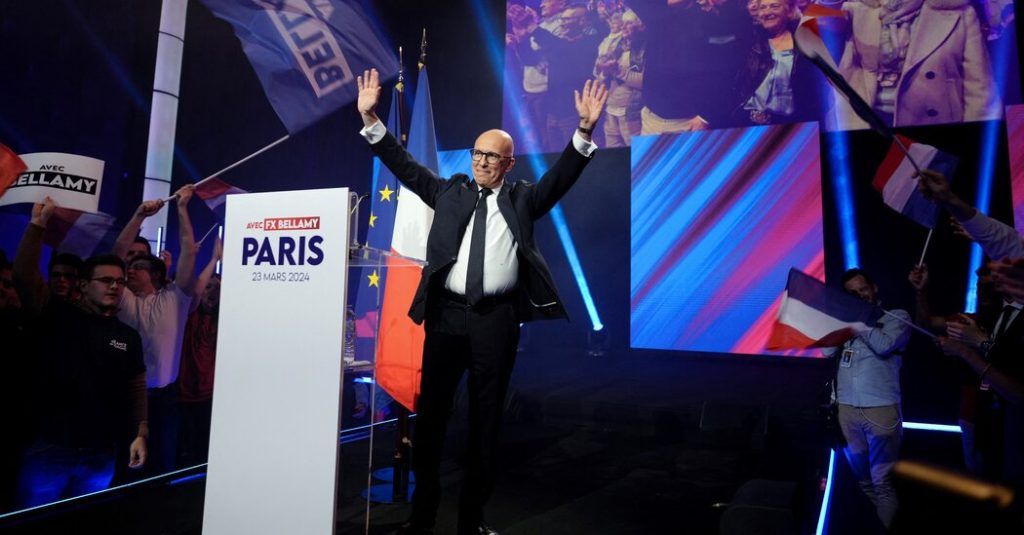The head of France’s conservative party, Éric Ciotti, has called for an alliance with the far-right party National Rally in the upcoming snap elections, breaking a longstanding taboo in French politics. This decision has caused turmoil within his party and across the country, as leaders have traditionally avoided aligning with Marine Le Pen’s party. While mainstream political parties have shunned the far-right in the past, trends across Europe have seen barriers between these parties weaken as a consensus forms around the need to address issues like illegal immigration.
The decision to dissolve the lower house of Parliament by President Emmanuel Macron has caused uncertainty in France just weeks before the country is set to host the Olympic Games. Political parties are scrambling to understand the implications of Macron’s decision and prepare for the upcoming short election campaign. With Moody’s warning that the snap election poses financial risks for France, the stakes are high as parties navigate alliances and strategies in the face of a changing political landscape.
The National Assembly elections are scheduled for June 30 and July 7, following Macron’s party’s defeat in the European Parliament elections. With the National Rally led by Jordan Bardella gaining significant support, conservative parties like Republicans are grappling with new strategies to stay relevant and maintain their influence. While Macron’s centrist party struggles to form alliances, the far right and far left present alternative visions that appeal to different segments of the population.
Éric Ciotti’s decision to align with the far-right National Rally marks a significant departure from the traditional stance of the Republicans party. By acknowledging that old methods are no longer effective and that an alliance is necessary to stay competitive, Ciotti has challenged the established norms in French politics. While his announcement has been met with fury from some quarters within his party, it underscores the shifting landscape and the need for new alliances in order to remain a relevant force in French politics.
The Republicans’ history as a dominant political force in France has been upended in recent years by changing voter preferences and shifting political dynamics. As traditional parties grapple with the rise of far-right populism and anti-establishment sentiments, they are forced to reconsider their long-held positions on issues like immigration and crime. With internal divisions and disagreements on how to respond to changing political currents, parties like the Republicans are facing an identity crisis and are struggling to find their place in the evolving political landscape.
While the Republicans’ leadership grapples with the fallout from Ciotti’s decision and internal dissent, the broader acceptance of the far-right National Rally as a legitimate political force continues to grow. As economic challenges and social issues dominate the political discourse, voters are increasingly open to new ideas and political movements that promise change, even if it comes with risks. The upcoming elections will be a test for the traditional parties in France, as they navigate alliances, ideological shifts, and the evolving expectations of the electorate in a time of political uncertainty.


